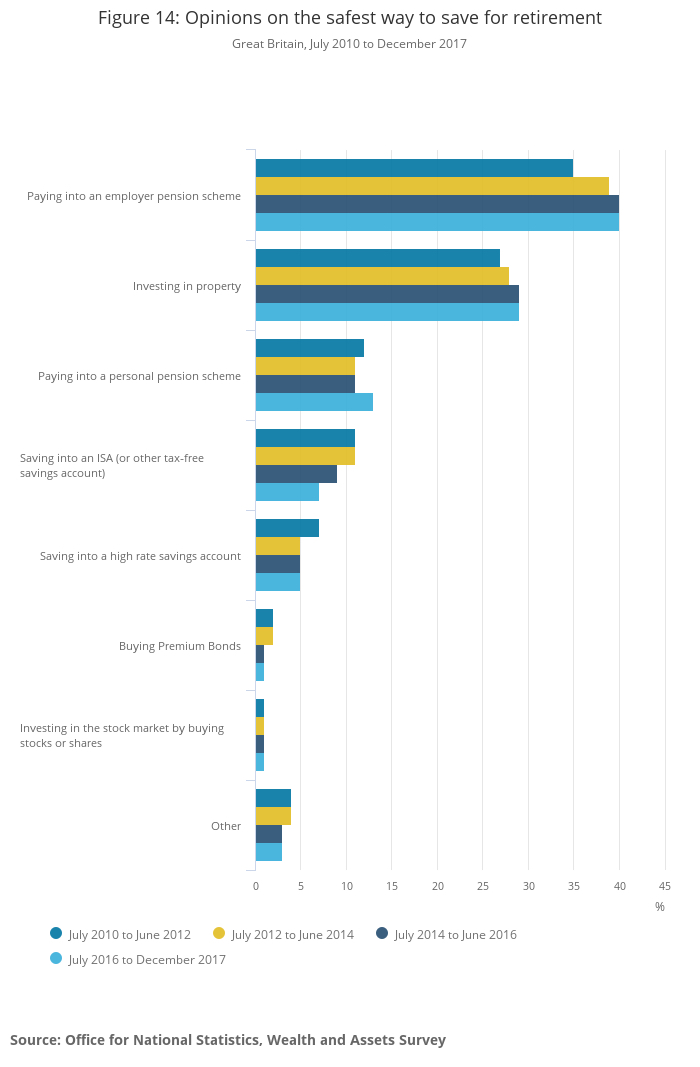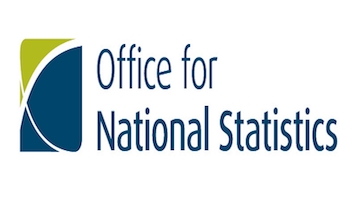A new survey has revealed employer pensions were viewed as the safest way to save for retirement.
The preliminary findings of the study, by the Office for National Statistics (ONS), looked into attitudes towards saving for retirement from July 2016 to December 2017.
Key pensions highlights from the report included:
· Employer pensions viewed as the safest way to save for retirement (40%), followed by investing in property (29%) and paying into a personal pension scheme (13%)
· Property jumps into first place for the self-employed, selected by 42% of respondents
· More savers citing low income as key reason for not paying into a pension
· Drop in those who feel they understand enough about pensions to make a decision about saving for retirement, down from 46% to 42%
· Over two-thirds (36%) of eligible employees not aware they have been automatically enrolled into a workplace pension scheme
The report said the proportion of people who selected “paying into an employer pension scheme”, as the safest way to financially prepare for retirement was “similar across the age distribution, but with a slightly smaller proportion of the younger age groups.
“We can also see that investing in property was slightly more popular among those aged 25 to 44 years.
“However, those aged 16 to 24 years were the most likely to think that paying into a personal pension was the safest way to save for retirement, with 17% reporting this in July 2016 to December 2017.”
The statistics also revealed 15% of the self-employed thought employer pensions would be the safest way to save for retirement.

Tom Selby, senior analyst at AJ Bell, said: “Despite a raging bull market driving up stock prices for the past eight years at the same time as automatic enrolment has been introduced for millions of workers, people’s perceptions about pensions have barely shifted.
“Although employer pensions continue to be viewed as the safest way to save for retirement, Britain’s love affair with property shows little sign of shifting.
“While property remains an important source of equity in retirement for many people, investors shouldn’t rely solely on this as a drop in values – such as that experienced ten years ago during the financial crisis – would be a serious kick in the teeth.”
He added: “Poor engagement risks leading to poor decisions – or no decision at all – resulting in an increased likelihood of poor outcomes in retirement.
“Addressing this engagement gap now needs to become a central priority for policymakers across regulators and Government.
“The good news is that auto-enrolment is working well to-date, with over a third of eligible employees not even aware they have been nudged into saving for retirement.
“The real test is to come, however, with minimum contributions set to edge up to 8% of qualifying earnings next year.
“Ministers will be hoping that a combination of wage increases and inertia mean opt-outs stay relatively low, at which point reforms to increase the amount people are paying in will need to be considered.”

